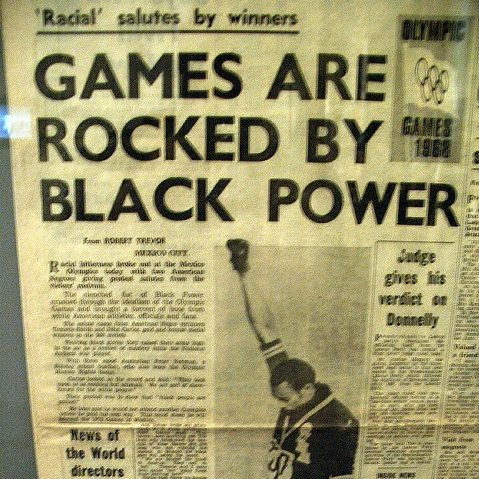
June 2, 2017; Chronicle of Higher Education
The headline reads, “A Polarized Campus Struggles to Understand How Racial Tensions Became National News.” Really? Could it have anything to do with the fact that, lately, any racial tension is national news? Or maybe it is because the most widely read publication among college and university professionals, the Chronicle of Higher Education, has over the last three years published more than three hundred articles on the subject of race issues. Historically, media coverage on race did not matter unless it was negative or destructive.
In recent years, we see that much of the engaged media share a sense of urgency for racial and ethnic issues in the United States. Coverage across a variety of sources has focused on watershed events, including a rash of police shootings. There has been a common theme of fear, including, variously, fear of the police and fear of rapid demographic change. Liberal and conservative media have characterized these events and the reporting of them differently.
In 2016, the New York Times created a newsroom-wide team for covering race. The thinking is that given the complexity of race, the media coverage should be more thoughtful.
The “polarized campus” is a decidedly liberal liberal arts college located in Olympia, Washington, where close to 60 percent of its residents vote Democratic. Evergreen State College is a racially diverse institution. In 2016, the college reported 25.6 percent minority population, including African American, Native, Asian, Hispanic, and Pacific Islanders. The events at Evergreen State University and the resulting media coverage is an example of how the source of media coverage underscores why race matters.
The controversy began with Black students’ accusations of campus police harassment and culminated with what appears to be miscommunication around this year’s observance of the campus-wide Day of Absence. The “Day,” observed since 1970, was an opportunity for students, faculty, and staff to go off-campus to discuss campus race issues. In later years, a “Day of Presence” was added to allow campus-wide discussion with returning Black students.
Sign up for our free newsletters
Subscribe to NPQ's newsletters to have our top stories delivered directly to your inbox.
By signing up, you agree to our privacy policy and terms of use, and to receive messages from NPQ and our partners.
This year, organizers decided to try and reverse the process by asking non-Blacks to observe and participate in the Day’s activities instead. Things took a decidedly downward turn. Bret Weinstein, a professor known for his progressive beliefs and actions, chastised the Black students for progressive racism. As he wrote in an email, he believed that “there is a huge difference between a group or coalition deciding to voluntarily absent themselves from a shared space in order to highlight their vital and under-appreciated roles… and a group or coalition encouraging another group to go away.” That was followed by a student outcry of racism, institutional racism, protests on campus protests in his classroom, and a demand to the college president that Weinstein be fired. Finally, a credible telephone threat of armed violence resulted in a two-day shutdown. The school reopened June 3rd.
In the beginning, when there were only campus memos, letters, emails and lists of demands, the matter attracted the attention of blogs and local print and media coverage. Media coverage began to influence and drive events at the college. Angry state legislators, citing racism on the campus, vowed to introduce a bill phasing out Evergreen’s funding. State Rep. Matt Manweller claimed there was peer pressure to force white people off campus and that protests had been reminiscent of communist witch hunts by some in Congress in the 1940s and 1950s, as well as intimidation tactics of Nazi “brownshirts.” They questioned if political correctness influenced the president’s granting student demands—most notably, excusing protesters from homework assignments.
The shutdown brought increased social media attention as well as national print and media coverage from both ends of the political spectrum. Videos circulated of protesters confronting Weinstein have shown tense and sometimes angry moments. Weinstein appeared on Fox News to talk and even wrote a provocative titled op-ed in the Wall Street Journal, “The Campus Mob Came For Me and You, Professor, Could Be Next.”
After the Fox News appearance, right-leaning media outlets, including Breitbart News, covered the story with fake-news commentary about the mainstream media’s lack of coverage, in spite of the New York Times’ eyebrow-raising op-ed, “When the Left Turns on Its Own.”
The downside is that media coverage has begun to influence events at the college. On Monday, June 5th, another campus-wide threat of violence kept Evergreen State College closed until 3 pm, with classes cancelled. KATU News reports the school is open today.—Mary Frances Mitchner













